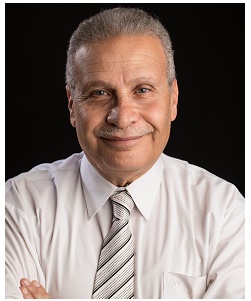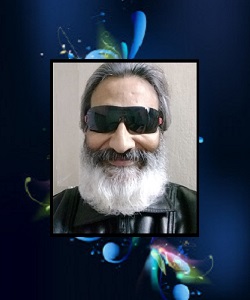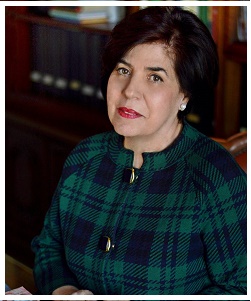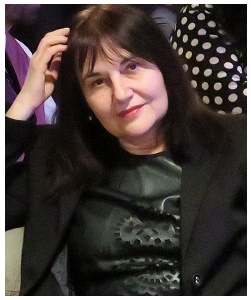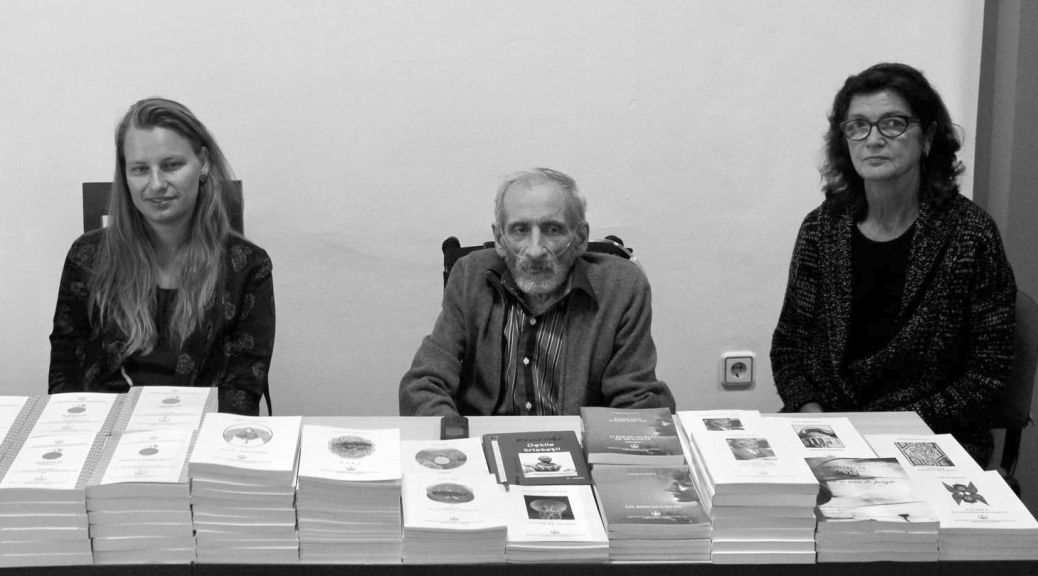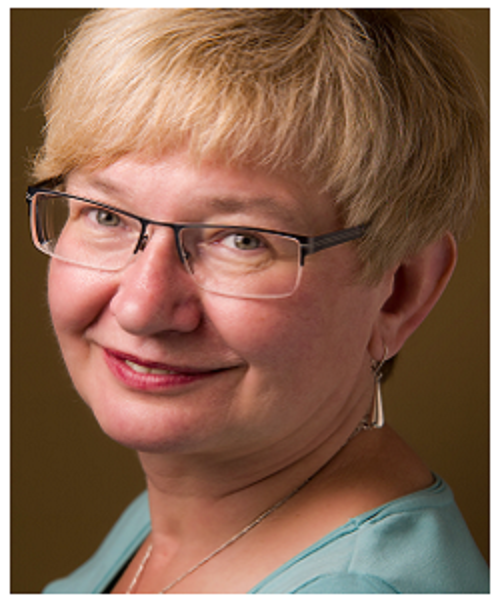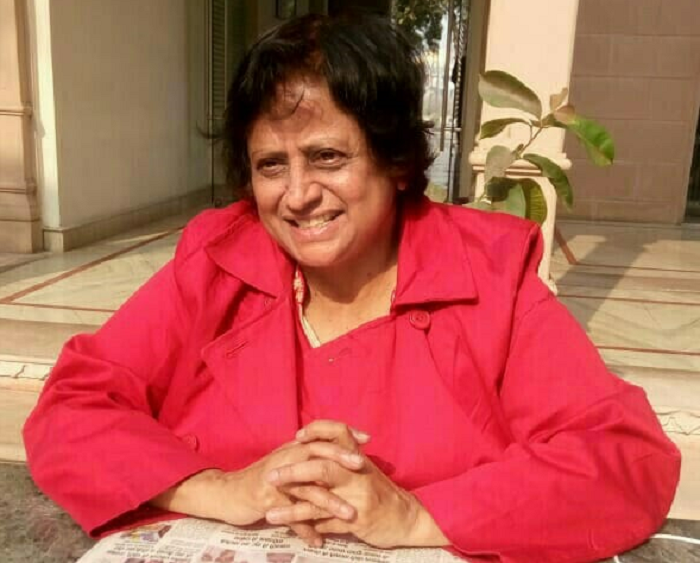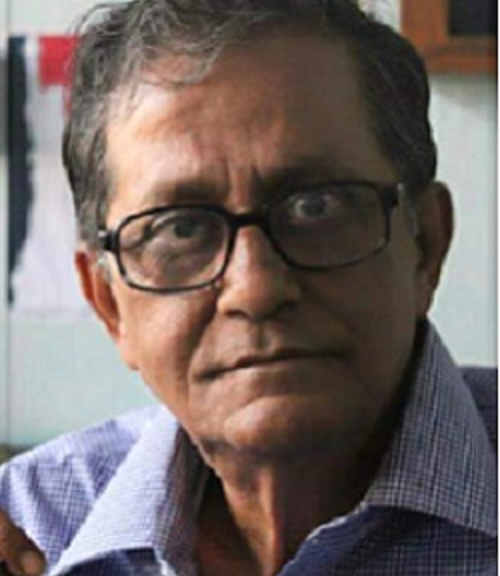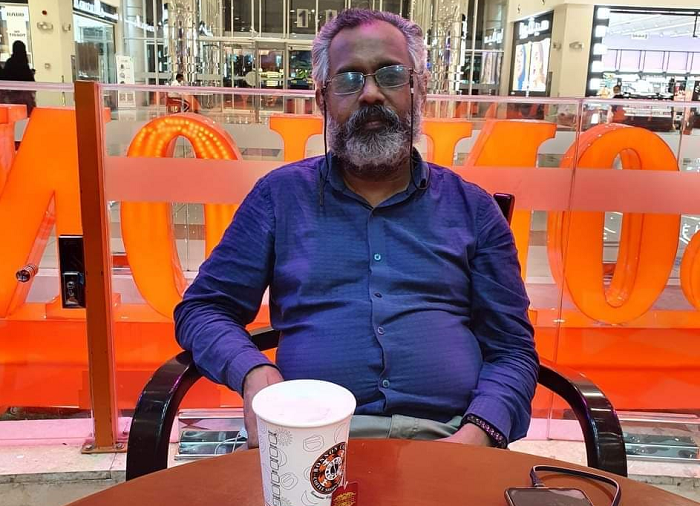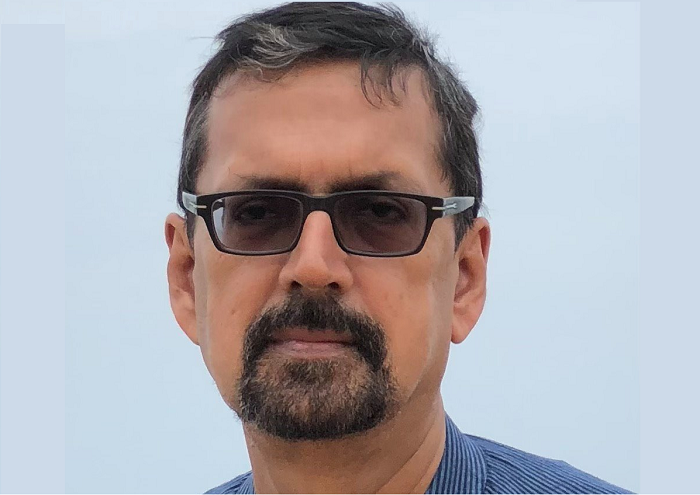By MARIAN DZIWISZ
Poets And Astrophysicists Someone, once said: "there is a great difference between those "who, like in a cave, were shut up in themselves, and only saw the shadows of the world, and those who, with their senses - connected with the wonders of technology, in the light of thought explore the universes, to be able to describe their discoveries in scientific works to be able to describe their discoveries in scientific works". Those who say this have not understood that through inheritance and karma from the world, which every living being receives, the images of the Universe are written in man, and all that the Earth has produced. Hence the knowledge of the world available to poets. It is enough to have an inner mirror, or a third eye, in order to be able to know and explore what is available to astrophysicists. You only need your own senses, reason, imagination - to listen, just as the Vedic soothsayers did, and also Hesiod, Homer and Słowacki when he wrote - "Genesis from the spirit". But these same bards listened attentively, what the witches, witches talked about and astronomers discovered in the sky. Inner vision and outer knowledge, they put into stanzas to tell everyone about what they had learned from birth, of the world both near and far. They called the stars and planets gods And bound human destinies to them, Therefore their works, rulers and priests, have made them sacred, claiming to them inalienable rights. Socrates read the works of the soothsayers with great attention, That's why he could argue with the sophists and fight the dogmas instilled by the priests, such as the one well known from Euthyphron and Antigone: that "he who obeys the gods cannot err", even when he acts against reason and the voice of his own free conscience. For which, for "godlessness" and "corruption of youth" - he was accused. He was sentenced to death by drinking hemlock. No wonder that Plato had the poets expelled from the state, so that the pious people would not be confused. And Aristotle accused them of making up or that they hide the truth in metaphors. The pope imposed censorship on free poetry and thought, to keep the people of God in obedience, on rebellious scholars and poets and poets, he cursed them and condemned their works, and if they did not improve, he had them burned at the stake. But when those dark times were over, Poets and astrophysicists made a new alliance, to speak openly and honestly to speak openly and honestly, hiding nothing of what what physics has discovered on earth and in the Universe, rejecting dogmas and what "Metaphysics" taught us. Krakow 30.01.2022 Physics Of The Naive "Errare humanum est" "To err is human". Apart from Aristotle, no one was born a wise man, Although everyone has "divine wisdom" by nature, "We learn from our mistakes, at school, from our neighbour; by observing nature, in which small creatures often solve not easy tasks. Finally, he asks "the eternal - man, [...] for he does not envy [...] without lust he waits and without passion'[1], for he does not call anyone a "fool", but like Socrates, seemingly naive - questions in order to find out calmly what is the motive of human action: love or hatred? Seeking revenge or justice? Pride or humility? If necessary, he listens to the voice of a free conscience, which in him is "the voice of god", without name or face, but sensitive to the good of nature and the good of man. Aristotle called himself a sage, recognising that he possessed "divine wisdom", he proclaimed: "... it should not be that the wise should be commanded to do something, but that he should command, and that he should not have to acknowledge the view of another, but that he should be trusted by the less wise."[2] Thus he called the poets naïve, He rejected the views of Plato, whom he disliked and the Pythagoreans - he rejected, in "Physics", he stated that the structure of the atom was not complex, in the "Metaphysics", he considered God to be the cause of motion. Thus he returned to the views of Democritus and sophists. This is how he proved with the effort of thought how to create "eternal truths", in order to put an end to man's curiosity, because it only "leads to hell". One should therefore trust the sophists and believe in their dogmas. Henceforth, throughout the long centuries of the Middle Ages, who, searching for an answer to his curiosity, and violated the above rules, had to - confess them in confession and wait for absolution, or else the court of inquisition awaited him and here on earth - to experience hell. [1] To: C.K. Norwid, "Promethidion". [2] Artstoteles, "Metaphysics", transl. T. Żeleźnik, Lublin 1986, vol. I, book I, p. 3 Krakow 30.01.2022 The Mystery Of Yellow "Not all that glitters is gold", but yellow, after all, attracts not only searching eyes, yellow is also recognized by touch. Hence it marks the thresholds for the blind and shows the way. Yellow warns of what can be harmful. Yellow lining the tunnels of the Cosmos, through which the smallest particles travel, that feed or poison celestial bodies. The spot in the eye is yellow. Its cones and rods open the tunnels through which the karma of the outside world reaches the senses, excites, tempts or it warns, repels, holds back. Because yellow opens the gates between beings. It connects them with each other, but also separates them. If in a fertilised egg, the "corpus luteum" does not appear, to open the way to the uterine wall, - it will die and be thrown into the rubbish. When it appears, it will find an anchor, it will open an umbilical tunnel for the fetus, through which the karma will penetrate, nourishing what is developing. Spring yellows please our eyes. They attract insects and hungry bees. It is with birds singing, insects making music, The mating of spring begins revealing the secrets of life's birth. Gold forsythia chases away Marzanne. Buttercups and marsh marigolds light up the nights. Late in the day, the rape fields turn golden And golden goldenrod pampers our eyes. When yellow pollen penetrates Into the pistil's depth - the fruit is set, which with its flesh and juice will be a treat to all. The bees take the yellow pollen to the hive And fill with golden honey The wax granaries. The grains of wheat will sparkle with gold, From which when we grind, we'll bake breads. When the yellow rapeseed yields, The golden oil will caress the palate. And the yellow bile will ease your digestion. But yellow also holds - Other secrets which do not bring it glory at all. For when eyes gaze into gold they inspire not only admiration, but also desire, then there are those who are - ready to leap into the fire, or send out troops - to fight long wars. There is also poison in the golden cup, which, like a surfeit of bile that spills out - brings bitterness and also kills. Thus yellow is a sign of disintegration: the human community into those who have gold and those who strive for it in vain, their strength, and sometimes even their lives; the family, if jealousy appears in it and an excess of bile, which brings out bitterness, that breaks the ties; In the Roman church, where the white and yellow flag separates the hierarchy that dips in gold, from the people who offer sacrifices, and covers itself in white, so as not to bring shame to the priests - not to God. But also in nature yellow decay begins, for they shimmer with gold in autumn: the feathers of grasses, the leaves of many trees, especially birches, before they fall to the ground and decompose in the soil. No wonder, then, in what the people believe, that for merit on earth, a crown of gold awaits you in heaven, for evil deeds you will breathe yellow sulphur in hell. Cracow 23.01.2022 Neutrin Microparticles - radiated from proton nuclei, which the most skilful eye cannot see, they carry information on them. Like chromosomes in the body of a mature hen, they gather in the egg and form DNA There they calmly wait - for a photon that carries RNA, will pair it up so that they can create the potential of life. This is how neutrinos circulate in the Universe, which the cosmic wind sweeps away. They are thrown from "black holes" - into space, like tiny pixels that create images, they bind with atoms, which find similar - molecules form. These, in turn, in order to survive or burn out, they look for a karma which will feed them, or into a bright flame their building blocks, so that the neutrinos, where they came from. - could return. Hence there is more matter in the Universe, than life on Earth; than the celestial bodies that shine at night and the elements in the great black holes, because neutrinos are blown by the cosmic wind. So they are there, where apparently they are not. Like DNA and souls in every living being. Cracow 31.01.2022 ©Copyright by Marian Dziwisz
MARIAN DZIWISZ b. 1943 in the village of Michałowice near Kraków. He graduated from the Primary School in Wola Zachariaszowska; Little Theological Seminary of the XX Missionaries in Krakow (1961). He completed his Polish studies at the Pedagogical University in Krakow (1966, currently the Pedagogical University) and a PhD in philosophy in the field of philosophy (1980). He was the editor and secretary of the editorial board of: socio-cultural monthly magazines: “ZDANIE”; “LITERARY AND ARTISTIC WRITING” and “FORMUM OF THOUGHT FREE” in Krakow; assistant professor at the Institute of Teacher Education of ODN in Krakow; a Polish language teacher in high schools and technical schools; lecturer of philosophy at Krakow universities. He debuted with poems in Nowa Wieś (1978). He published his poems, among others in the pages of: “Zdania”, “Okolic”, “Pisma Literacko-Artystyczny” until 1990. His output includes volumes of poetry, among others “Ergo sum” 2007, “Madonna” 2011, “Categorical Imperative” 2014 [available at the Jagiellonian Library], in the years 2015 – 2017 three volumes of the story “Semper in altum – Always up” at LSW. He has published: a series of articles in scientific and socio-cultural journals. Since 2020, at the invitation of Thadddeus Hutyra, Konrad Stawiarski and Marija Najhefer, Popov has been publishing his poems and essays on the websites of national and international Poetry Groups.


